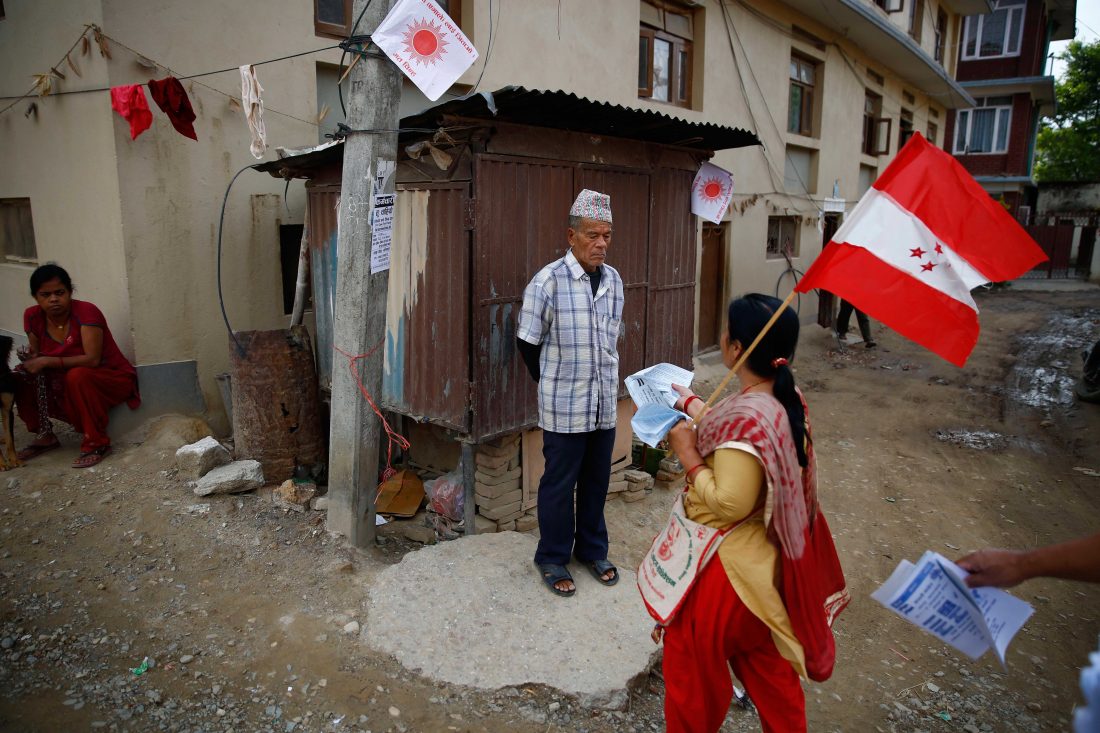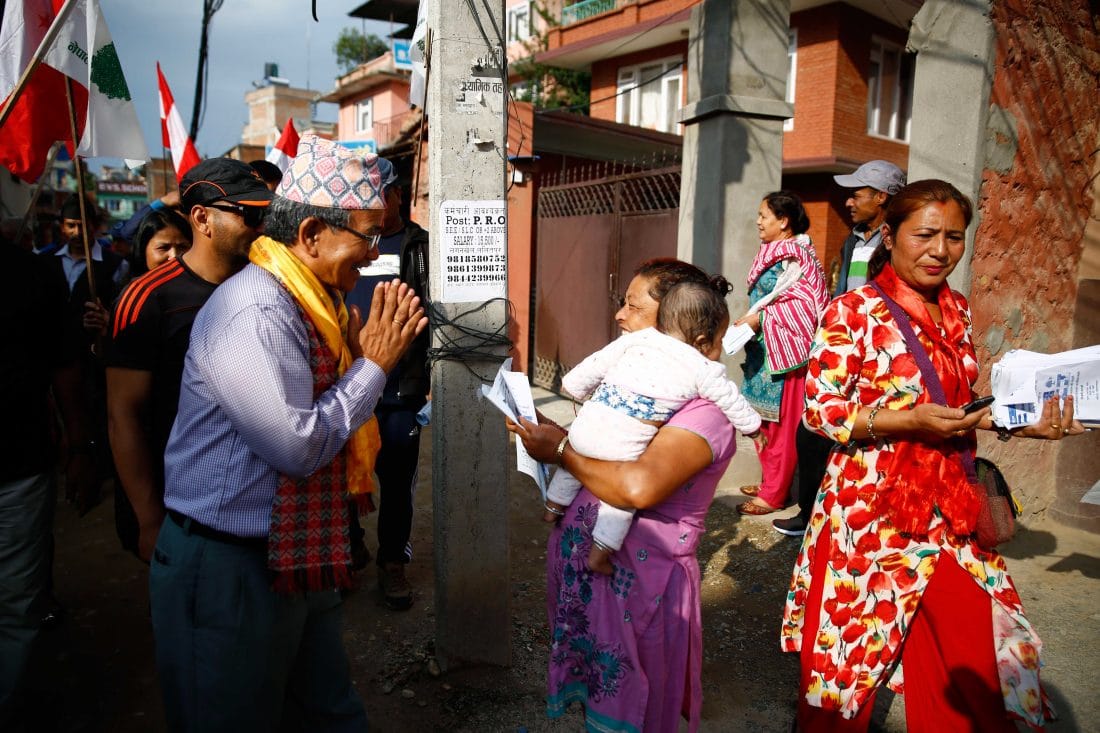By George Varughese

Election campaigning underway for the upcoming May 14 local elections in Nepal, the first to be held in 20 years. Photo/Skanda Gautam/The Himalayan Times
For too long in Nepal, local-level needs have been set aside; first, in order to cope with the insurgency during the 1990s and, then, to implement the transitional political process that followed the comprehensive peace accord during the late 2000s. During the decade-long transitional period ending in September 2015, Nepal’s interim constitution sought to ensure that all political parties had a say in governing the country while a final political settlement was being negotiated around a new constitution. However, the cacophony of interest groups represented by the multitude of political parties caused political instability and policy volatility in government. Subnational governance was grossly neglected as a consequence. Disasters like the earthquakes of 2015 have laid bare the tattered remains of government at the local level, where centrally orchestrated relief and recovery mechanisms have heaved and strained for two years to help survivors. Thus, local elections come at a time when the gap between state and society is critically wide.
Over the past two decades, this distance from Kathmandu has been exacerbated by the alienation of Nepalis from government because of a dysfunctional process of consensus politics that has percolated from national to local levels. From the dividing up among local party elites of block grants meant for local development and the party-based appointments of public servants at all levels, to the level of impunity in policy decisions and criminal neglect of those who suffer, the perverse results of this political process manifest every day in stupefying actions that serve the narrow interests of a tyrannical minority of those who have usurped representation of the Nepali public. While this minority’s credibility is in shambles, their legitimacy will be tested in the next few days and months when Nepalis vote in local elections, which are expected to pave the way for constitutionally mandated provincial and national elections later this year.

Local leaders speak with communities ahead of May 14 elections. Photo/Skanda Gautam/The Himalayan Times
Of these three elections, the local elections are perhaps the most salient, not least because of constitutional provisions that require a significant component of unconditional financial support for the newly elected local governments. Although put off for 15 years (local elections should have been held every five years in Nepal), there is a promise in these elections that surpasses the exercise of electoral choice by millions of Nepalis. To be able to choose from among their own communities a fresh cohort of representatives who are empowered through jurisdiction and funds to serve their own local needs is certainly part of that promise. However, the exercise of choice through elections alone is insufficient for productive democratic politics and democratic citizenship. For the promise of these elections to deliver more than a set of local elites, who have been schooled in collusive, extractive behavior by their Kathmandu-based patrons, it’s critical that Nepalis reconnect individually and associationally in civic artisanship in their local political communities. That is to say: Nepalis shall have to move beyond just a commitment to the common good and public service—expressed through participation in elections—and participate in a form of politics that centers on public problem-solving, recognizes and clarifies legitimate interests, and, through broad civic initiative, constrains the process of elite domination. There are many lessons from efforts at self-governance in Nepal—community groups engaged in forestry, irrigation, micro hydro, schools, and so on—that can illuminate the way in working collaboratively with local government to achieve beneficial outcomes.
While for a brief period in the 1990s Nepalis did lead the world in showing how communities could govern themselves in the management and use of natural resources, the transformation from a longstanding, state-sponsored political culture of ruler-subject-hood to that of accountable citizenship requires much more consistent and long-term support. The fresh competition and negotiation among a multitude of local governments and between provinces in the new calculus of a restructured governance order in Nepal brings additional challenges. Clearly, placing citizenship at the center of this new order will require going beyond the idea of citizenship as a form of membership, to be constantly kicked about as a political football between those who seek and those who deny equality, for example. Or by those who think the provision of rights and the execution of duties are the standard for measuring accountability and political progress.
After these local elections, how do we attain a state of political engagement where citizen-mayors and citizen-public at the local level both work to reform and improve their political community? How will accountability get co-created by both instead of being demanded by one and supplied by the other? Dedicated effort and investment are required to promote civic capacity, culture, and agency such that the Nepali public reset their connection with the state. Only then will res publica become more than just part of Nepal’s new title.
George Varughese is The Asia Foundation’s country representative in Nepal. The views and opinions expressed here are those of the individual author and not those of The Asia Foundation or its funders.
Reprinted with permission from the Asia Foundation
